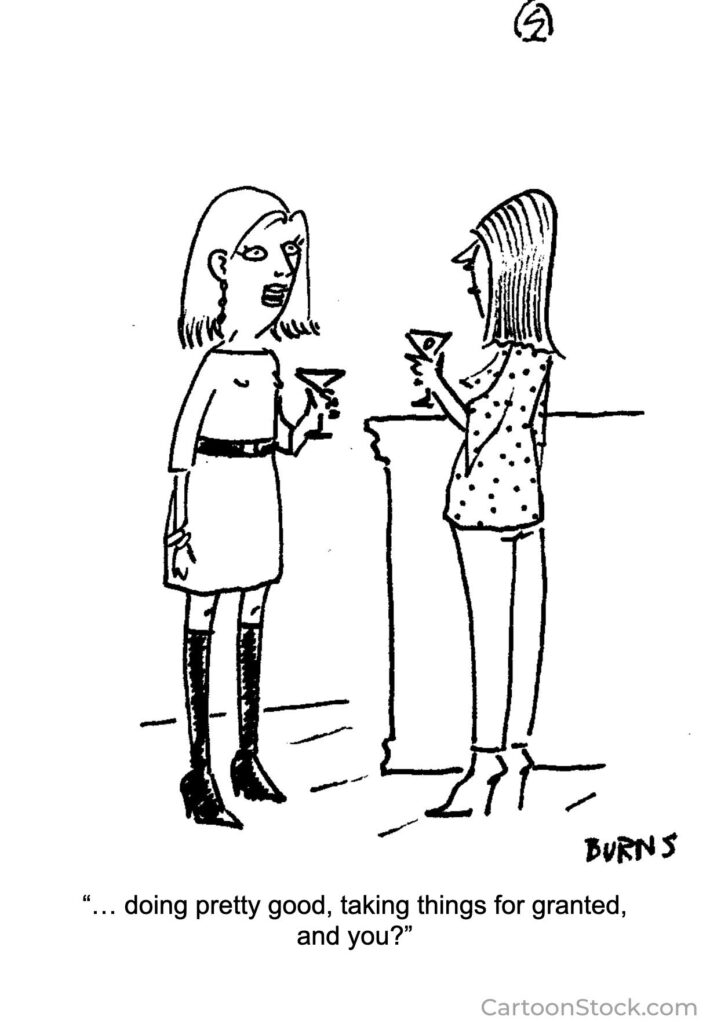
Every day we feel a plethora of emotions. Some are painful (hurt, fear, insecurity), others are pleasant (happy, fulfilled, secure). One of my favorite emotions is the sense of awe and wonder—a mixture of amazement, reverence, incredulity, surprise, admiration, serendipity, providence, and often beauty. I seldom feel it, which makes it even more special when I do.
Moments of awe arrest your attention, slow your pace, cause you to whisper, and sometimes make you gently weep. Time changes to slow motion mode.
Here are some examples of times when I’ve been overcome by awe and wonder.
When my family and I were on a December transatlantic crossing of the Queen Mary 2, the ship sailed into a snowstorm. It was nearly a white out. I thought it was lovely and refreshing but the moment didn’t produce feelings of awe until I noticed the waitstaff had stopped what they were doing to watch the snow fall. Most of them were raised in Malaysia and had never seen snow. Soon, they were on the deck throwing snowballs at each other. Watching their reaction to seeing snow for the first time filled my heart with awe.
On one of our Travel with Friends trips, we were driving down the eastern coast of Ireland when two complete seven-colors rainbows appeared, almost overlapping, with all four points disappearing into the sea. Rainbows usually vanish rapidly but these remained for a long time.
Several years ago Mary and I were visiting the Sagrada Familia Cathedral in Barcelona. Designed by Gaudi, it will finally be finished in 2025 – 150 years after construction began. The entire western wall of the cathedral is stained glass. Every afternoon at a certain moment in time direct sunlight shines through the colorful glass and floods the space with a kaleidoscope of color; even visitors become illuminated with colors. We were there to sense the moment.
Notice that these three examples occurred while traveling. Moments of awe and wonder occur in day-to-day living but the frequency seems to accelerate when we’re in foreign places. Perhaps we’re just more observant while traveling, or we’re jostled out of our ruts.
When was the last time you felt awe and wonder?
See below for a travel opportunity-of-a-lifetime.
Off to Alaska!
I’ve scheduled two information meetings regarding the July 30-August 11 2025 trip to Alaska. [Here’s the brochure.]
-
-
Wednesday, October 30, 6:00-6:30 in the choir room at Stonebriar Community Church in Frisco, TX.
-
Thursday, October 31, 6:00-6:45 Zoom meeting. If you want to participate just send me your email address.




